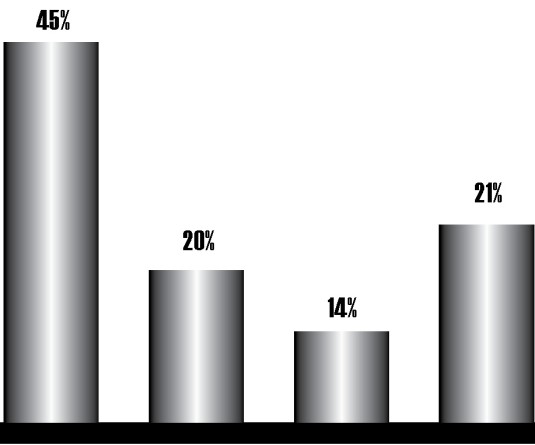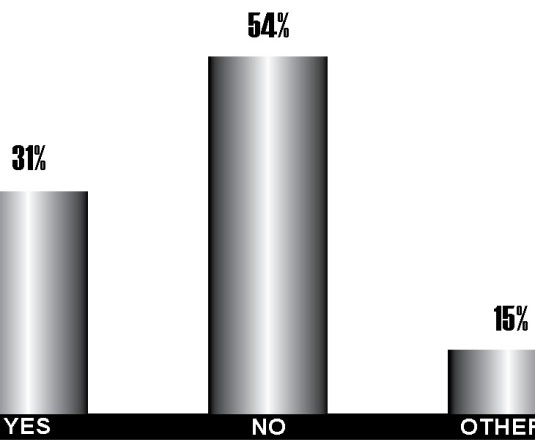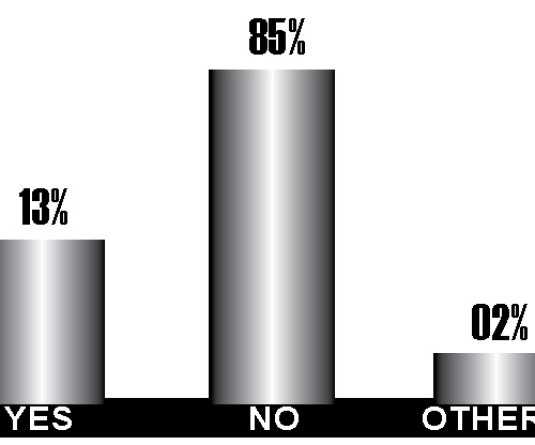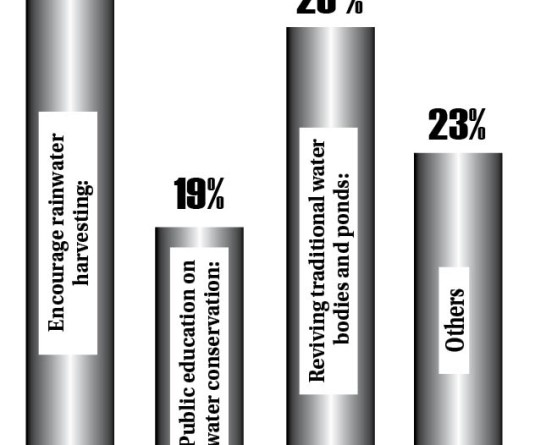1
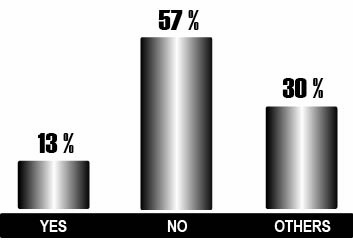
Some of those who voted YES had this to say:
• Yes. But in accordance with the universal human right value and Indian Constitution.
• Yes. because some laws are made to suit some VC; majority clan or powerful influential member of the village thus undermining the poor their rights and privileges
• Yes. To bring unity and strength. Every Naga village should follow the same customary law.
• Yes. If not codified, a law can be interpreted in conflicting ways to meet the greed of man.
• Yes because due to customary laws, we are moving backward.
• Yes. Improvement for the next society. Self esteem and image.
• Yes. Makes it easier to learn and understand.
• Yes. But in a modern context and based universal human value and constitution.
• Yes. Need to be documented in print before getting extinct. To be made available for all to comply and practice especially what is relevant and applicable in today's context.
• Yes, because every village is of different tribe, therefore each village has laws, custom, tradition, culture and language or dialect.
• Yes, because they are unique in themselves.
• Yes. Every customary law must be codified in order to make justice to the judgments, without which the stern laws that is not relevant to modern era may not preserve the traditional laws which is most important for tribal people...
• Yes. By the name of customary law in Naga society corruption is increasing day by day.
• Every Naga villages has differences in the practice of customary law as every Naga village was an independent democratic republic. Earlier one was confine within the jurisdiction of its particular village without much interaction with the neighbouring villages. But, presently there is so much interaction and activities within villages & also within tribes. Therefore, a uniform codified customary law will enable speedy trials & better judgment. However, a certain level of exclusive rights/laws must be under the authority of each village.
• Yes. Sometimes it’s not relevant and practical with the present way of living especially in terms of mixed culture and way of living.
• Yes. Because we are Naga and Nagas are not Indian.
• Yes. Because it took birth through natural process.
Some of those who voted NO had this to say:
• No. We need to first modernize customary law. If we are to codify the present form of customary law, it would be the end for Nagas. Customary law must first be revised to the present contemporary realities.
• No. After codification, the extent of application will become a problem. Also, there is a culture of respect and belief in the elders that they shall know and decide the best. However, with changing economic and social landscape due to influence of modern education, the secular laws will need to be incorporated. In the meanwhile, it is better to demand for inclusion in sixth schedule so as to manage its affairs as per its customary laws. Codification binds a vibrant stream into a stale pond as it stops incorporating changes.
• No. Naga customary law need to be uncodified as per Naga tradition and custom.
• No. What we need is Indigenous Law, not a codified customary law.
• No. We have both civil law and customary laws. The jurisdiction between civil law and customary law must be clear. Customary law cannot be codified. How can the customary law for one village become applicable for another village? Or how can the customary law for one tribe become applicable for another tribe? This is absurd.
• No. Codification is not required. In the modern world, the universal declaration of human rights provides the basis on which customary law should operate. The application of customary law should not violate the various human rights conventions.
• No way. It is not morally right nor is it legally feasible to codify customary law when all the villages have its own customary laws. Codifying it would mean that the customary law of the bigger villages will feature more prominently in the codified law and will become an imposition on the smaller villages.
• No. Uniform Civil Code
• No. Big villages and big tribes have a tendency of forcing themselves over smaller ones.
• No. Customary laws I believe, is very much a part of our culture and everyday’s life. However, with time there are some laws which go against women for e.g. their participation in political sphere which I think was unfair back then, and now.
Some of those who voted OTHERS had this to say:
• Codifying customary law would mean the end of customary law. Instead of codifying customary law, the common values of all Naga village customary laws should be enshrined as the universal declaration of Naga values and village customary laws should be made consistent to these values.
• Let the Dobashi and the other local village authorities decide subject to their own regions and also not exceeding it's own jurisdictions which might hamper the duties of the constitutional law.


